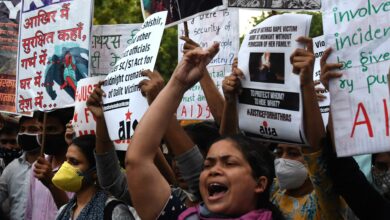Cuba launches public consultations on new Family Code

Havana, Feb 1 (EFE).- Cuba on Tuesday launched an unusual, three-month process to gather public input on a new Family Code, a legislative package that is expected to legalize gay marriage, tackle gender-based violence and prohibit child marriages.
The government is seeking the citizenry’s full backing for the package’s 471 articles, saying they reflect the diversity of society and ensure equality and liberty.
“It’s a code that takes into account the rights that all types of families in the country should have. And so it’s an inclusive code, a modern code, a humanist code,” Cuban President Miguel Diaz-Canel said recently.
Foreign Minister Bruno Rodriguez said for his part on Twitter that the package, which will update the island’s existing regulations on marriage, divorce, marital property relations, adoption and other family-related regulations dating back to 1975, is “modern and coherent with today’s Cuba” and aims to “delineate a more inclusive, just and dignified vision for our families.”
But it has come under criticism from both the left and right.
On the one hand, LGBTIQ+ activists see it as a timid and tardy gesture that is an attempt to whitewash Cuba’s homophobic past, and feminist groups lament that it does not specifically classify femicide (gender-based killings of women and girls) as a crime.
The Catholic Church, meanwhile, rejects articles of the bill that would allow same-sex couples to marry and adopt children.
Questions also have been raised about why out of 70 pieces of legislation in the current National Assembly session only this one has been put up for public consultation.
The process involves a series of community meetings and debates nationwide and also allows the more than 1.3 million Cubans living abroad to participate in the discussions.
The Cubadebate official web portal says 78,000 meeting points have been set up, while official Communist Party daily Granma says the first gathering is scheduled for Tuesday night in the eastern city of Las Tunas.
Electoral authorities say 900,000 people, including jurists, law students and other specialists, will guide the debate and later process the information. The conclusions will be delivered in May to the National Assembly.
That unicameral legislature will analyze those public contributions and include them in the new Family Code, which is to be approved by July.
Later, at a date to be determined in the second half of the year, the final version of the Code is to be submitted to a referendum. EFE
int-lh/mc
NOTE TO SUBSCRIBERS: Decisions made by the Cuban authorities in recent months have severely reduced staff at Efe’s bureau in Havana, where only two journalists are currently able to carry out their work. Efe is hopeful that the Cuban government will allow it to recover its news-reporting capacity on the island as soon as possible.





